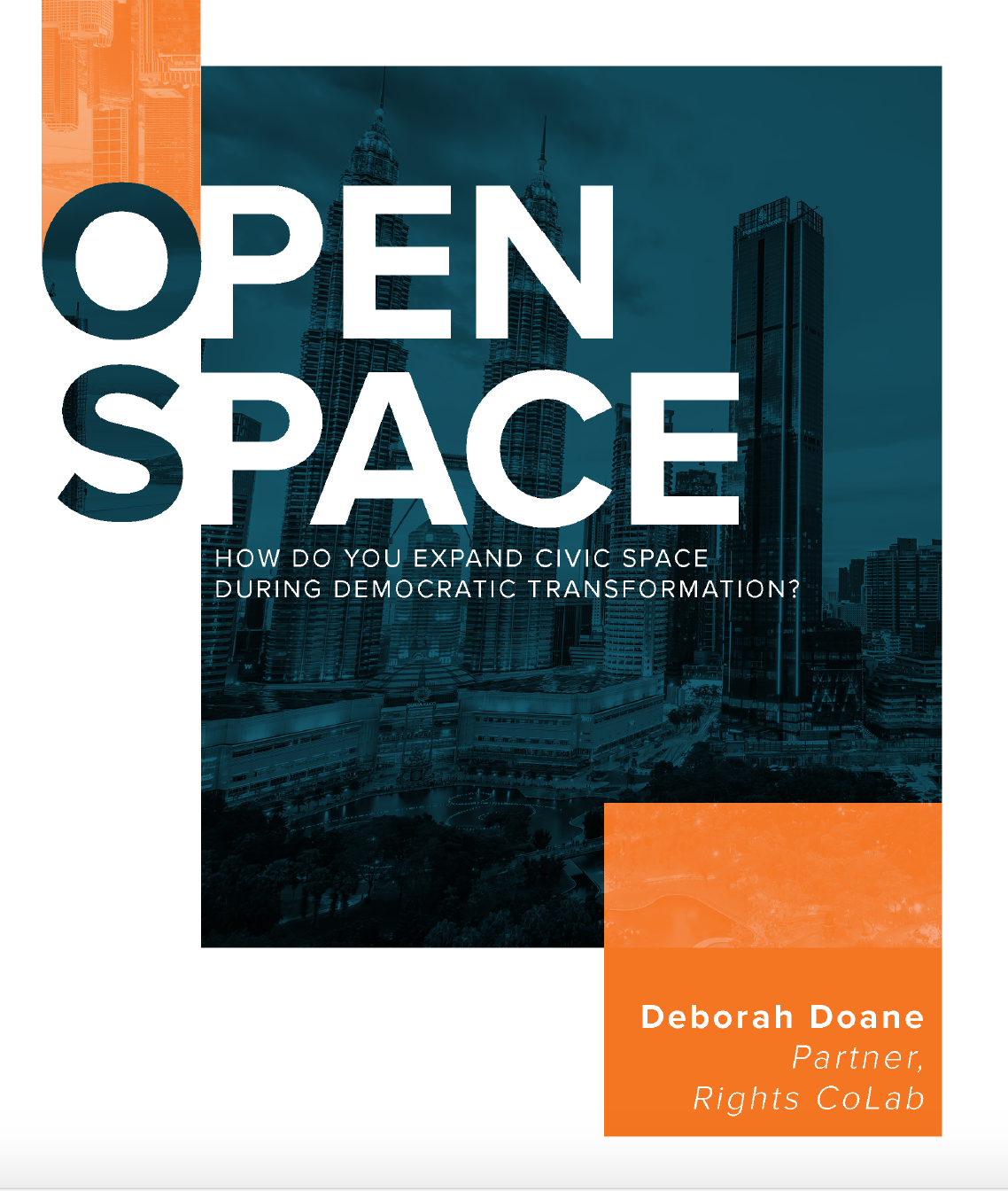Since lockdown started in mid-March, it almost feels like everything that came BC — before COVID-19 — is no longer relevant.
I conducted some research late last year on strategies to keep civic space open and how to find opportunities to do so. I looked at recent democratic transformations in six countries where there was a more positive outlook on the otherwise gloomy, long-standing trend of “shrinking civic space.” Across these diverse countries were some surprising commonalities about how to improve and expand the opportunities for enabling civil society to function.
The report was finished in late January. After a much-needed holiday in February, I intended to launch the findings in early March, but of course, events had taken a different turn. Many of us have been locked up at home, spending endless hours on Zoom, joining webinars and just trying to make sense of it all. I would speak to my colleagues in Ghana or Colombia, all of us trying to keep going in our makeshift offices — with kitchens and kids as our new backdrop — in conditions we simply could not have predicted just a few weeks before.
The initial feeling was that my research was already out of date. Any grain of optimism we had about opening opportunities for civic space were quickly overtaken by despair and anxiety. This perspective was reflected in a blog I wrote for Ariadne, a European network for funders, early on in the lockdown.
In many ways, COVID-19 has been a boon to despots who want to shrink and control civil society. In monitoring government responses since the start of the pandemic, ICNL has found hundreds of new restrictions on civic freedoms, impacting negatively on civic space. Many of these hamper civil society’s ability to help communities in need, while simultaneously omitting vital scrutiny of government actions. While these are supposed to be “emergency” powers, some worry that such new measures as increased surveillance will remain in place long after the emergency has subsided.
But after the initial shock of lockdown, something surprising happened. In communities around the world, both North and South, civil society actually proved to be far more resilient, finding innovative ways to blossom. Rights CoLab has been tracking many of these, such as mutual aid communities that give direct, localized support, or organizations working to combat myths about the pandemic and protecting vital human rights.
Beyond these innovations, the sudden uprising of the Black Lives Matter (BLM) movement after the murder of George Floyd in late May reached new heights and ricocheted around the world. Alongside very active protests, new discussions and actions addressing race and power were springing up everywhere. Civic space hadn’t closed down, it just took on new, and dare I say it, exciting forms.
And I realized that far from being outdated, the research I undertook last year was, in fact, very relevant indeed. What has happened, both as a result of COVID-19 and BLM, has actually echoed my findings on how to open civic space. Two specific lessons from the research stand out.
First, it is critical for civil society to work outside of capital cities, to engage in practical actions that counter the view that civil society is made up of a disconnected “elite”; in other words, actions that make real differences in people’s daily lives. We’ve seen this during the pandemic in spades: both formal and informal organizations throughout the world have re-purposed their work to help people survive the pandemic while advocating for their rights, including in more repressive regimes.
Second, developing stronger localized funding models to ensure long-term sustainability, and reducing dependency on foreign funding over time, is essential for survival. The humanitarian response to COVID-19 has been hampered where these have been lacking, and some donors have been unwilling to allow civil society to re-purpose their funds. INGOs have had to plug their own funding shortfalls and have closed down offices in places where their support would normally be expected, many of these in countries where civic space was already closing. Meanwhile, community philanthropy has stepped in to help raise and distribute money locally. The infrastructure for these endeavours, however, needs longer-lasting and sustained investment. The call from the #shiftthepower movement feels more relevant now than ever before.
Many people I interviewed for the study also told me that coalition work and finding common cause across civil society groups on relevant issues — such as fair economies or universal health care — is a powerful, lasting way to protect civic space. We’ve already seen the COVID-19 pandemic used as a launch pad to do just that. In my own country, the UK, the #buildbackbetter coalition has united trade unions and civil society leaders in environment, development, and health alongside progressive business communities, giving people the tools to organize locally.
Most importantly perhaps, the report also shows where funders can invest now to ensure that civil society can play its vital role in helping people both survive and thrive, not just in the current emergency but also well into the future. I’ve realized that you don’t necessarily need a democratic opening to protect and uphold civic space. While legal protections and other formal means to ensure that civil society has a voice are absolutely critical, civil society has begun to lay its own groundwork to ensure its meaning and relevance whatever conditions we face — global pandemic included.
Download the report:
Open Space: How Do You Expand Civic Space During Democratic Transformation?
By Deborah Doane, Published by Rights CoLab, June 2020
Photo by Polina Kirilenko on Unsplash

